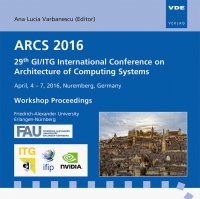From Active Learning to Dedicated Collaborative Interactive Learning
Conference: ARCS 2016 - 29th International Conference on Architecture of Computing Systems
04/04/2016 - 04/07/2016 at Nürnberg, Deutschland
Proceedings: ARCS 2016
Pages: 8Language: englishTyp: PDF
Personal VDE Members are entitled to a 10% discount on this title
Authors:
Calma, Adrian; Reitmaier, Tobias; Sick, Bernhard (Intelligent Embedded Systems, University of Kassel, Germany)
Leimeister, Jan Marco; Oeste-Reiss, Sarah (Information Systems, University of Kassel, Germany)
Lukowicz, Paul (Embedded Intelligence, DFKI, Kaiserslautern, Germany)
Schmidt, Albrecht (Human-Computer Interaction, University of Stuttgart, Germany)
Stumme, Gerd (Knowledge and Data Engineering, University of Kassel, Germany)
Zweig, Katharina Anna (University of Kaiserslautern, Germany)
Abstract:
Active learning (AL) is a machine learning paradigm where an active learner has to train a model (e.g., a classifier) which is in principle trained in a supervised way. AL has to be done by means of a data set where a low fraction of samples (also termed data points or observations) are labeled. To obtain labels for the unlabeled samples, the active learner has to ask an oracle (e.g., a human expert) for labels. In most cases, the goal is to maximize some metric assessing the task performance (e.g., the classification accuracy) and to minimize the number of queries at the same time. In this article, we first briefly discuss the state-of-the-art in the field of AL. Then, we propose the concept of dedicated collaborative interactive learning (D-CIL) and describe some research challenges. With D-CIL, we will overcome many of the harsh limitations of current AL. In particular, we envision scenarios where the expert may be wrong for various reasons. There also might be several or even many experts with different expertise who collaborate, the experts may label not only samples but also supply knowledge at a higher level such as rules, and we consider that the labeling costs depend on many conditions. Moreover, human experts may even profit by improving their own knowledge when they get feedback from the active learner.


